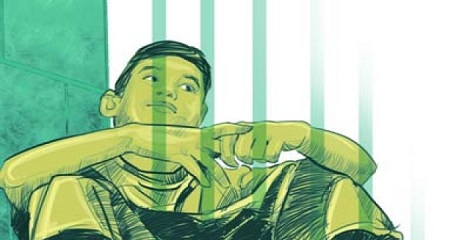The Juvenile Justice (Care and Protection of Children) Act, 2015 with special provisions to tackle child offenders in the age group of 16-18 years committing heinous offences, came into force.
- The act will replace Juvenile Justice (Care and Protection of Children) Act, 2000.
- The JJ Act, 2015 provides for strengthened provisions for both children in need of care and protection and children in conflict with law.
- To streamline adoption procedures for orphan, abandoned and surrendered children, the existing Central Adoption Resource Authority (CARA) is given the status of a statutory body to enable it to perform its function more effectively.
 Key Provisions:
Key Provisions:
- Treatment of juveniles – The 2015 bill suggests that juveniles aged between 16 to 18 years of age committing dreadful offences be treated as adults.
- Penalty – Maximum penalty for a juvenile in the 2000 Act is three years. The current bill paves way for harsher punishments, though it keeps death penalty and life imprisonment out of its ambit.
- Role of Juvenile Justice Board (JJB) – The proposed Bill empowers the JJB to conduct a preliminary inquiry in certain cases to establish whether a child is placed in a home or sent to Children’s Court.
- Child Welfare Committee – Current bill mandates that the committee meet at least 20 days in a month.
- Appeals – Appeals will have to be made within 30 days to the Children’s Court and then the High Court.
- Adoption – Inter-country adoption of children can take place within the country if child has been declared legally free for adoption.
- Foster care of juvenile – The 2000 Act allows a child to be given for temporary placement with a family for a short period of time, where the biological family of the child may be allowed to visit. The current Bill adds a new provision for monthly checks on foster family by the CWC.
- After care – The current Bill allows the child to be provided one-time financial support by a child care institution after completing 18 years of age.
The provisions provide for placing children in a “place of safety” both during and after the trial till they attain the age of 21 years after which an evaluation of the child shall be conducted by the Children’s Court.
- After the evaluation, the child is either released on probation and if the child is not reformed then the child will be sent to a jail for remaining term.
AffairsCloud Recommends Oliveboard Mock Test
AffairsCloud Ebook - Support Us to Grow
Govt Jobs by Category
Bank Jobs Notification




